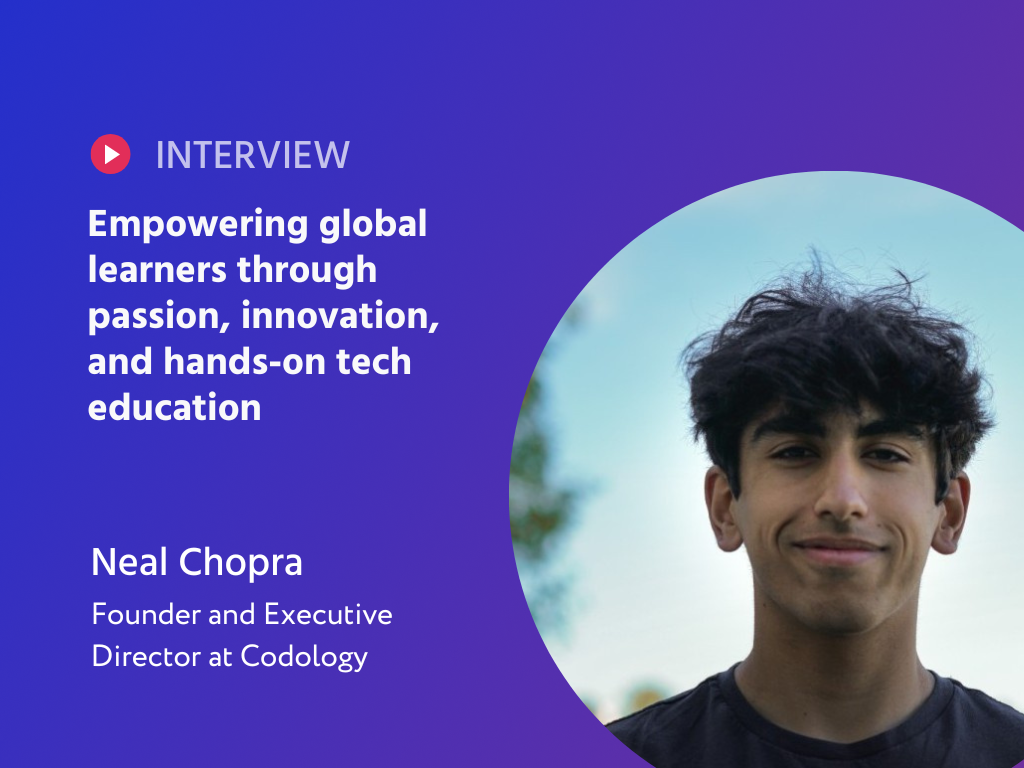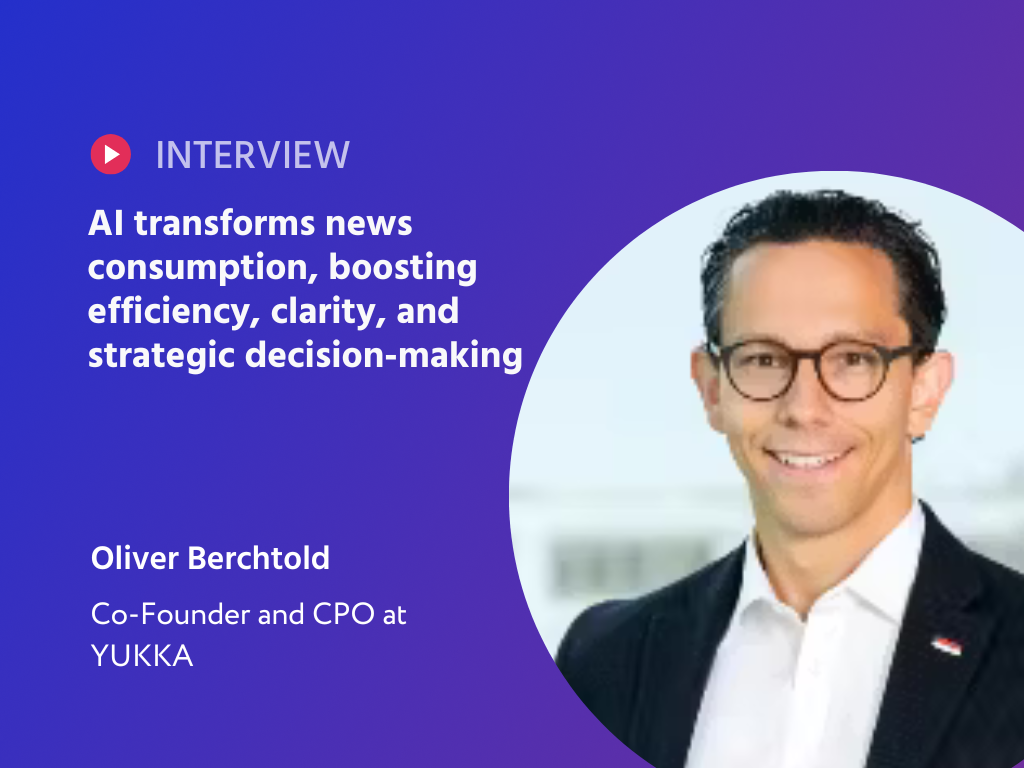In the last episode of Bright Founders Talk, we delve into the fascinating journey of Isabel Hoffmann, the founder and CEO of Preemie, a pioneering company at the forefront of food safety and diagnostics.
Isabel shares how her career evolved from academia to launching groundbreaking enterprises, including her latest venture, Preemie. This company, driven by her personal experience with her daughter's health issues, develops sensors that analyze the chemical composition of substances outside the laboratory setting. Isabel's narrative is not just about technological achievement; it's a story of a mother's resolve to solve a critical problem affecting her child's health, turning it into a universal solution.
Through our interview, listeners will discover how Isabel's diverse ventures—from 3D animation to genetic testing—reflect her relentless pursuit of integrating technology with real-world applications. Join us as Isabel Hoffmann unravels the layers of her entrepreneurial spirit and the profound impact of her work on families and industries alike.
Isabel Hoffmann's Journey Through Tech and Beyond
From Isabel's early days experimenting with 3D animations to creating games sprinkled with pixie dust for children, Isabel's journey has been anything but conventional. She recalls the birth of her first venture in the early '90s, Advanced Digital Design, where her team developed algorithms that brought virtual 3D models to life, a groundbreaking feat at the time. “We were putting natural phenomena to it, like fog and so on, creating a completely new visual experience,” Isabel explains, her eyes lighting up as she reminisces about these early innovations.
We were putting natural phenomena to it, like fog and so on, creating a completely new visual experience
In a captivating interview, Isabel shares the personal journey behind her business ventures, highlighting the profound influence of her family on her entrepreneurial path. She delves into how her transition from graphic design to the gaming industry was inspired by her son. This shift led to the founding of a gaming company that created games based on her son's adventures, infusing a sense of wonder and familial connection into her work.
"One of my largest companies was a gaming company," Isabel recalls with a smile. "Some of the famous games that we have, and they still are on the internet, were based on my son."
This venture experienced remarkable growth, expanding from a small startup to a thriving enterprise with 343 employees.
Isabel's story underscores the significant role her family has played in shaping her professional journey, demonstrating how personal experiences can inspire and drive business success. Her narrative is a testament to the power of blending personal passion with entrepreneurial endeavors, creating a legacy that resonates both professionally and personally.
Breaking Down the Magic: Isabel Hoffmann and the Art of Innovation
Isabel Hoffmann, seasoned entrepreneur and mathematician, shares the unique philosophy behind her innovative ventures, drawing parallels between solving complex mathematical theories and creating cutting-edge companies. As she reflects on the inspiration drawn from historical conundrums like Fermat's Last Theorem, Isabel explains, "It's about looking at challenges from multiple angles, much like how Fermat's theorem was eventually proven—not just through number theory but via a blend of many disciplines." This multidisciplinary approach is not just academic for Isabel; it’s a fundamental aspect of how she constructs her businesses, aiming to tackle seemingly impossible challenges by connecting diverse fields of knowledge.
One of Isabel’s standout projects is developing sensors to analyze the chemical composition of foods, which she likens to solving a giant, intricate puzzle. “We're trying to give people a simple tool that can read the molecular fingerprints of what's in their food and help them make intelligent decisions about what they should eat,” she says. This mission led to an ambitious undertaking in Ghana, where her technology aimed to provide cocoa farmers with a fair assessment of their products by detecting the fat content of cocoa beans. This project highlighted not just the potential for technology to impact agriculture but also underscored the complexity of deploying such innovations in varied environments across the globe.
We're trying to give people a simple tool that can read the molecular fingerprints of what's in their food and help them make intelligent decisions about what they should eat
Highlighting the sheer scale of the challenge, Isabel recounts a significant revelation during the project in Ghana: "Our sensors started detecting specific soil characteristics from different regions, affecting the cocoa beans," she reveals. This unexpected twist in the project added layers of complexity, emphasizing that their task was akin to creating a Google Maps for global agriculture. Isabel’s narrative underlines a key theme: "It’s not magic, it’s science." This quote encapsulates her commitment to demystifying technology while tackling some of the world's most pressing issues, proving that innovation often requires seeing beyond the conventional and embracing the intricate dance of numerous disciplines.
Unlocking the Secrets of the Sea: Isabel Hoffmann's Trailblazing Journey in Fish Authentication
Isabel Hoffmann's ventures are a testament to the complex challenges and revolutionary impacts of integrating technology with everyday problems. During a recent project in Tokyo, her team faced a bewildering hurdle: their scanners misidentified authentic Japanese sea bass as inauthentic because the models were trained only on European varieties. This hiccup unveiled the vast diversity and specificity needed in global food authentication. "It’s mind-boggling," Isabel remarks, illustrating the vastness of biological variability and the meticulous precision required to tailor technological solutions to local contexts.
Expanding the conversation to broader applications, Isabel discusses how their technology could revolutionize not just food safety but also environmental and health diagnostics. These sensors, capable of detecting various organic substances, have potential uses ranging from identifying pollutants to early disease diagnostics. Isabel's passion for practical solutions comes through as she describes their shift towards life sciences, driven by a global health crisis that demands rapid, accessible testing solutions. "We need quick, rapid testing on the spot," she asserts, highlighting the urgency of developing technologies that deliver immediate health insights.
We need quick, rapid testing on the spot
But Isabel's ambitions don't stop at human health. She is deeply involved in a project that could change how we assess the freshness of fish, a staple in diets worldwide. Using a method to measure a fish's k-value, her team aims to provide clear, scientific assessments of whether fish is safe to eat raw or should be cooked. "This project is close to my heart as it will help many people," Isabel shares, her voice tinged with the excitement of potential impact. This endeavor illustrates her commitment to using science for practical, everyday benefits, enhancing safety and reducing waste in the food industry.
From Sea Bass to Bone Dating: Isabel Hoffmann's Sensor Technology Explores Uncharted Waters
As Isabel Hoffmann delves deeper into the myriad applications of her innovative sensor technology, it becomes evident that the impact of her work stretches far beyond initial expectations. With projects spanning from determining the authenticity of Japanese sea bass in Tokyo's bustling fish markets to aiding British American Tobacco in combating counterfeit products, Isabel's work exemplifies innovation in action. "Our models were created with European sea bass, not Japanese, showing just how much variety is out there," Isabel explains, highlighting the global challenge of adapting technology across diverse biological ecosystems.
Our models were created with European sea bass, not Japanese, showing just how much variety is out there
The conversation turns to the sensor's versatility, which Isabel vividly illustrates with examples from various ongoing projects around the world. One particularly striking application is in Africa, where Isabel's technology is used to analyze cow's milk to enhance nutritional outcomes through genetic matching. This approach not only boosts the health of the livestock but also supports local farming communities. "We do a lot with cow's milk; we’ve even extended our research to crab populations in Canada, determining their age by moisture content in their shells," she shares, showcasing the sensor's non-disruptive nature and its broad potential for environmental conservation.
Isabel's enthusiasm peaks as she recounts an unexpected use of her technology by a professor in Colorado, who utilized the sensor to date bones based on collagen remnants, offering a non-invasive alternative to traditional archaeological methods. "I'm always astonished by the new applications we find for our sensors," Isabel says, her excitement palpable. This ability to cross boundaries between disciplines— from food safety to forensic science and even historical research—underscores the transformative power of technology when driven by curiosity and a relentless pursuit of knowledge. As the interview wraps up, Isabel reflects on the entrepreneurial spirit that has guided her journey: "Consistency and persistency," she notes, are crucial, along with a healthy disregard for the naysayers.





